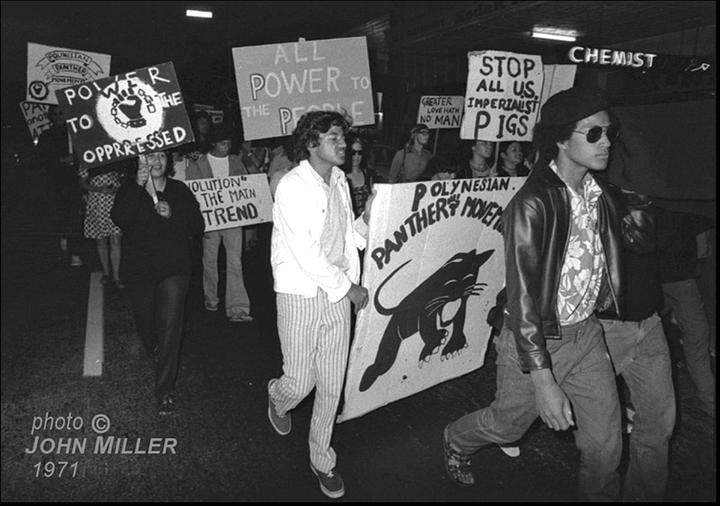Today marks 50 years to the day that six Pacific Islanders grouped together in central Auckland to form the Polynesian Panther Party.
The party was founded on 16 June 1971 by members Will ‘Ilolahia, Fred Schmidt, Nooroa Teavae, Paul Dapp, Eddie Williams and Vaughan Sanft. They were later joined by Tigilau Ness, Lupematasila Misatauveve Melani Anae and Alec Toleafoa.
They took inspiration from United States’ civil rights movement the Black Panthers, during a period of police brutality against the African American population.
Similar scenes of racial unrest occurred in Aotearoa, and long before the infamous Dawn Raids too. In the early 1870s, an Evening Post article said “Bad as the Chinese are, the South Sea savages are worse, and any extensive importation of them would have a most pernicious effect.”
New Zealand faced major economic troubles almost a century on from that report, and Pasifika immigrants brought under the allure of jobs in industrial labour were resorted to as the scapegoat.
“It was a time of revolution,” Associate Professor Lupematasila Misatauveve Dr Melani Anae told RNZ’s Untold Pacific History.
“To heck with authority, to heck with conservatism, to heck with the Vietnam War, that was the kind of climate we were growing up in,” she said.
“We delivered the West End newspaper around Ponsonby and Herne Bay to get money to pay for the office. The work we did as the Polynesian Panthers was conscientising, it was making people aware of who we were.”
Musician Tigilau Ness recalls that they were criticised for “hating white people”.
“We had to put up with that kind of stigma as well, not only from the Europeans, the white people, but from our own people. ‘Why you do this to the Palagi? Why you go fight the Police?’,” he said.
The Panthers insisted on peaceful strike and protest action, as opposed to their US counterparts.
They drove in supporters’ vehicles and “dawn raided” the homes of politicians by shining torches and yelling through loudspeakers, to prove why their work was necessary.
Legal rights pamphlets were distributed, homework centres were held in church halls and food co-ops were run. They also provided free transportation for the families of prison inmates who wanted to visit them, and on release free accommodation would be offered.
Fifty years on, the Panthers have concluded a tour of schools and Pasifika communities in Wellington, intending the share the story of the ‘Claw’ to the next generation.
The Polynesian Panther Party will hold a three-day fonotaga commemoration event this weekend at The University of Auckland’s Fale Pasifika.



